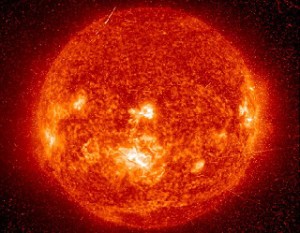Nuclear Fusion: Zero-Carbon Energy Source of the Future?

Thanks. This is very similar to what my friends at TriAlpha are doing here in California. In fact, from the article it’s hard to know who’s further ahead, especially since all this work is so clandestine.
My people at TriAlpha have succeeded in creating plasma that can be maintained indefinitely. I also believe that their approach, with one hydrogen atom and one boron-11 atom is better than using two deuterium atoms, but I’m not sure of that. The issue is a process that is aneutronic, i.e., one that doesn’t produce any extra neutrons, and both processes would accomplish that. In fact, both result in helium-4 atoms, but my people make three such atoms instead of one. (Thus the name TriAlpha; an alpha particle is another name for a helium-4 nucleus.)
Re: safety, I really don’t know. Whenever you get that much energy in a small space, I have to think there would be safety issues, but those participating in it don’t seem concerned about that. Also, because it’s fusion (rather than fission) the products are not radioactive.
In any case, it’s certainly good news that our civilization is advancing on this all-important front.

If they can ever make nuclear fusion work and the cost is within reason, it could be a good thing. It may be reasonable for research to continue, but whether it will ever be successful is unclear. It seems that they are always 10 years away from success.
Developing a better fission technology seems more promising. There are a number of possibilities for developing a better fission technology but the one which seems most promising to me is the liquid fluoride thorium reactor (LFTR). That’s a subset of reactors which use a liquid fuel, including reactors which use a uranium compound which is liquid at reactor temperatures. The LFTR was successful in prototype form but to prepare it for actual use would require more R & D and there is no guarantee of success.